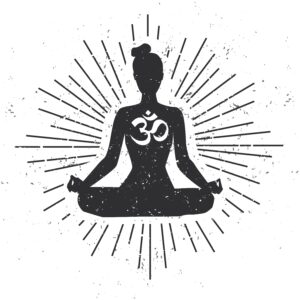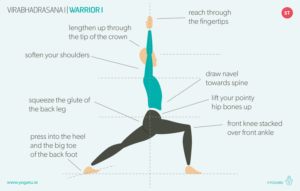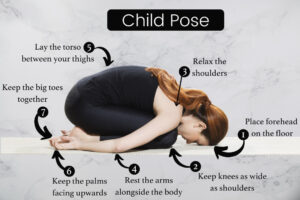
Now a worldwide practice, sacred texts trace the origins of yoga back to India over 5,000 years ago. Among the many benefits of yoga are flexibility, controlled breathing and other physical and mental health benefits. Throughout this blog we explore mental health benefits of yoga that anyone and everyone can benefit from. Keep reading to learn more about this powerful practice.
How Yoga Was Born
First mentioned in the Rig Veda—a sacred collection of texts, songs, mantras and rituals—yoga was developed by the Indus-Sarasvati civilization of northern India. The founding principles of yoga are ahimsa, satya, asteya, brahmacharya, aparigraha, shoucha, santosha, tapas, svadhyaya and Ishvara pranidhana.
Ahimsa
Non-violence for and towards all living beings.
Satya
Truthfulness in thoughts, words and deeds.
Asteya
Do not steal—both from others and yourself (such as limiting your own potential).
Brahmacharya
To stay in conduct with one’s own self; to live a life of celibacy.
Aparigraha
The virtue of non-possessiveness or non-greediness.
Shoucha
Purification of self.
Santosha
Contentment and satisfaction.
Tapas
Discipline, self-control, perseverance, and austerity.
Svadhyaya
Educating oneself, in particular, studying the Vedas and other sacred texts.
Ishvara Pranidhana
Honoring a higher power in order to reach the state of one’s true self. “Om” comes from Ishvara pranidhana.
 Throughout its long-standing history, yoga has been refined and expanded into various different forms of practices. While these practices still draw from yoga’s roots, fundamental concepts have evolved into mind, body and spirit.
Throughout its long-standing history, yoga has been refined and expanded into various different forms of practices. While these practices still draw from yoga’s roots, fundamental concepts have evolved into mind, body and spirit.
6 Benefits of Yoga for Mental Health
Mindfulness
At the core of all meditative practices is mindfulness: “The practice of being with yourself, your body, your thoughts and emotions in order to observe them without judgment.” Yoga is a type of movement meditation that incorporates repeated movements rather than total stillness, teaching us to be present with every breath and posture.
Stress & Anxiety Relief
An article by Healthline explains that “Yoga poses may help you release physical blockages like muscle knots, helping release emotions and tension.” The practice of yoga can also release mood-boosting endorphins, which combat stress and anxiety. Breathing exercises used in yoga, known as pranayama, can help calm the nervous system, therefore improving our stress responses and helping us stay in the present moment.
Joy
Since yoga releases “feel good” brain chemicals including GABA, serotonin, and dopamine, it can actually help fight depression and make us feel more joyful.
Better Sleep
Better breathing can result in better sleep. Pranayama can slow down our breathing and heart rate, resulting in increased relaxation. One study found that pranayama decreased snoring and daytime sleepiness in study participants, which may result in more restful sleep.
Improved Brain Functioning
Yoga can actually affect the brain’s neuroplasticity by activating areas of the brain that are responsible for executive functioning and focus. An article by Harvard Health Publishing published on June 12, 2021, explains “When you do yoga, your brain cells develop new connections, and changes occur in brain structure as well as function, resulting in improved cognitive skills, such as learning and memory. Yoga strengthens parts of the brain that play a key role in memory, attention, awareness, thought, and language. Think of it as weightlifting for the brain.”
Positive Self-Esteem
Because of its focus on self-validation, openness and self-awareness, yoga helps us practice self appreciation through the power of positive self-affirmations. One approach to yoga that stands out for its focus on building high self-esteem and self awareness is body mindful yoga, which combines yoga with positive language to help us understand the power words can have when it comes to how we think, speak and process information.
3 Easy Yoga Poses to Try

Mountain Pose
- Mountain Pose is the base for all standing yoga poses. This pose teaches us how to stand with the majestic steadiness and strength of a mountain, and helps us practice our alignment and focus.

Warrior I
- Also called Virabhadrasana, Warrior I is an excellent pose to use to build strength and improve stamina throughout your yoga practice. This pose both stretches the hips and thighs while also building strength in our lower body and core.

Child’s Pose
- This gentle resting pose promotes relaxation while also stretching the hips, thighs, legs and arms and releasing tension throughout the body.
For more beginner yoga poses, click here.

Final Thoughts
The mental health benefits of yoga have been supported through both scientific research and anecdotal experiences. Therapy used in conjunction with yoga can help optimize these benefits and provide additional support for your wellness journey.
Valera Health offers affordable and accessible virtual mental health services including individual therapy, group therapy (currently available in NY and MA), psychiatry and medication management.
Our Dialectical Behavior Therapy (DBT) therapy group offers participants the opportunity to learn more about how to incorporate mindfulness into their daily lives while expanding their support system. To learn more about our extensive list of group therapy offerings, click here.
If you are interested in learning more about any of the telemental healthcare services we offer, call 646-450-7748 or click here to schedule a free consultation with a Health Connector who will help you find a mental healthcare provider that’s the right fit for you.